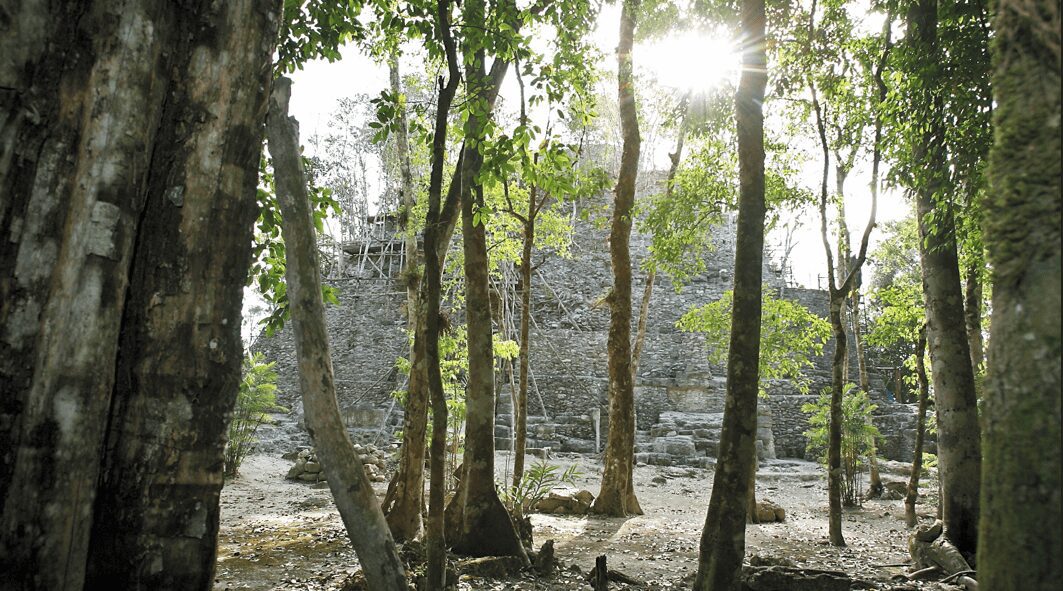Global Courant 2023-05-15 16:00:56
Protecting the fauna and avoiding illegal logging in the Petenera jungle is a daily struggle between resource guards and traffickers. In the last five years, that battle has focused on protecting precious woods that are difficult to find in other countries, although the consequences fall on rangers when they are threatened by organized crime.
Petén has a territorial extension of 35,854 kilometers and whose jungle is in the care of rangers from non-governmental organizations and at least 450 people from the National Council of Protected Areas (Conap), who do not have enough resources to mobilize.
From 2022 to date, four rangers, two from Conap and two from the Fundación para el Ecodesarrollo y la Conservación, (Fundaeco), have resigned and joined a migration program offered by the office of the United Nations High Commissioner. for Refugees (Acnur), an instance that protects people forced to flee their homes. The benefit includes their families so that they are not victims of reprisals. Other files are in process.
“The forest rangers are threatened by loggers and hunters, because with our help they have detained several of those who cut the wood and are taken to jail, but the law is very soft and they are released, then they look for those who were in the operation and they threaten them,” says Francisco Asturias, director of Fundaeco in the Petén area.
coveted
Rangers try to preserve mahogany, cedar, pinto, and oak trees, as they are more heavily trafficked timber. However, in recent years they have focused on caring for the granadilla tree, because its wood is in danger because it is used for luxury finishes on vehicles and yachts. It is also resistant to fungi, but especially because it has acoustic properties equal to the ant used to make the marimba, which is why it is coveted for the manufacture of percussion musical instruments, guitars and clarinets.
Traffickers have been looking at this wood since 2018 when the authorities reported the first captures on the Mexico-Guatemala border.
To date, 13 people have been arrested for cutting down the granadillo tree, although all of them have been released through alternative measures.
The detainees, according to environmentalists, are only loggers that are sent by the traffickers and enter through the communities of Calakmul and Balamku, which belong to Mexican territory but border the Mirador National Park in San Andrés, Petén.
The captures were reported through operations between resource guards in conjunction with the National Civil Police (PNC) and the army. Penalties for illegal logging in Guatemala range from 1 to 6 years in prison, and fines of Q2,000 to Q50,000 depending on the seriousness of the crime.
The loggers, according to the PNC, set up camps and wait for the rangers to move away to cut down the trees. They have been seized with electric saws and the vehicles they drive, which are usually four-wheelers. However, the agents confirm that after the operations the rangers are left without any type of protection and receive threats from those indicated.
Patrolling in the “heart of the Mayan jungle” is not easy, says Asturias, if you add the climatic conditions in which you must work because sometimes it is difficult to have transportation and food.
“The same need causes low-income families to volunteer to collaborate with the traffickers, cut or mark the trees for one hundred quetzales so that the loggers can come later,” says Asturias, who has worked 30 years in the Petén jungle.
Extraction
An agent from the Nature Protection Division (Diprona) affirms that decades ago, these woods were extracted by Asian mafias in Africa. However, not finding more raw material, they moved to other continents and found a niche for this precious material in the Petenera jungle.
A Conap resource guard assigned to Petén and who prefers to omit his name, affirms that the personnel is insufficient to cover “vast extensions of jungle” and for now 160 more people have been hired for two months, while they put out the forest fires, later the personnel to monitor protected areas will be the same and there is no replacement for those who retire.
The resource guard also confirms that there are several of his colleagues who want to resign and join the UNHCR program to leave the country, stating that “no one guarantees their safety.”
“Threats are personal or through messages, people who work in institutions or in the mayor’s offices have even threatened us,” he says.
The interviewee maintains that the intention of the workers is not to seek a pretext to be granted a visa and the cases are real.
Traffic
The southern area of Petén has been one of the most vulnerable to the smuggling of precious woods, and to counteract it, joint operations are organized between Diprona agents and Army personnel, the mayoral chiefs have assured.
They also operate in areas of the Maya Biosphere, in the area known as San Miguel La Palotada, in San Andrés, where an operations center was installed.
This region is not only the target of traffickers looking for wood, but also those who want to profit from the sale of pigeons and feline cubs, even if for that they have to cut down trees, according to information from the Arcas organization.
Apart from illegal trafficking, the wild animals that live in the Peteneras jungles are also affected by poaching and the advance of the agricultural frontier.








